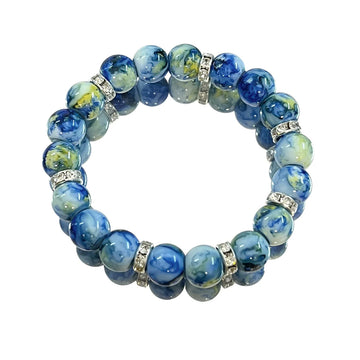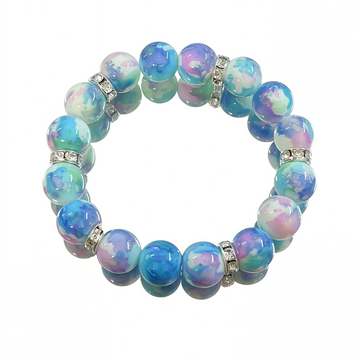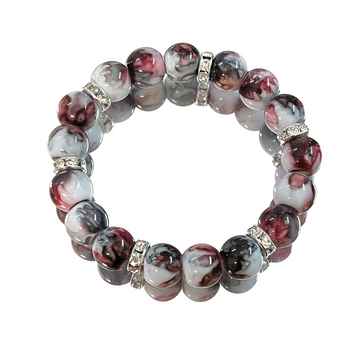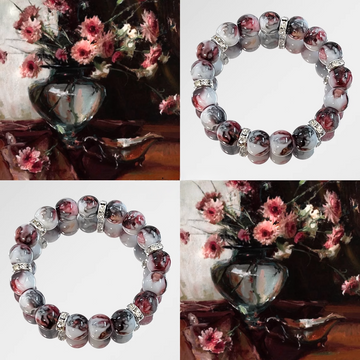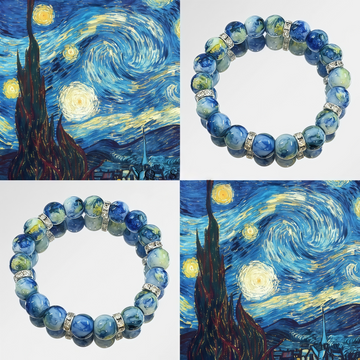Evaluating Brand Reputation When Choosing Stone Bracelets: Key Considerations
When purchasing a stone bracelet, the brand’s reputation plays a critical role in ensuring quality, ethical practices, and customer satisfaction. A trusted brand often reflects consistency in craftsmanship, transparency in sourcing, and responsiveness to consumer needs. Below are essential factors to assess when evaluating a brand’s credibility and reliability.
Assessing Craftsmanship and Quality Standards
The hallmark of a reputable brand lies in its commitment to producing durable, aesthetically pleasing stone bracelets. Key indicators include:
- Skill and Expertise: Brands with a long-standing reputation often employ artisans or gemologists with specialized training in stone selection, cutting, and setting. Look for mentions of in-house workshops or collaborations with skilled craftspeople, as this suggests attention to detail.
- Material Sourcing Transparency: Ethical brands openly share information about the origins of their stones and metals. For example, they may disclose partnerships with mines that adhere to fair labor practices or use recycled materials. Lack of transparency in sourcing can raise concerns about authenticity or sustainability.
- Quality Control Measures: Reliable brands implement rigorous inspections at every stage of production, from stone grading to final assembly. Reviews or testimonials mentioning consistent quality across multiple purchases reinforce a brand’s dedication to excellence.
Analyzing Customer Feedback and Community Trust
Customer experiences provide valuable insights into a brand’s reliability and service ethos. Pay attention to the following:
- Review Consistency: Look for patterns in customer feedback, such as praise for timely delivery, responsive customer support, or durability of products. Frequent complaints about misrepresented materials or poor communication may signal underlying issues.
- Long-Term Customer Relationships: Brands with a loyal customer base often prioritize after-sales service, such as repairs, resizing, or stone replacement. Positive mentions of these services in reviews indicate a commitment to customer satisfaction beyond the initial purchase.
- Community Engagement: Reputable brands may participate in industry events, collaborate with influencers, or contribute to educational initiatives about gemstones. Such activities demonstrate a dedication to fostering trust and expertise within the community.
Verifying Ethical Practices and Sustainability Commitments
In an era of increasing environmental and social awareness, a brand’s ethical stance is a vital consideration. Evaluate these aspects:
- Sustainability Initiatives: Brands committed to sustainability may use recycled metals, eco-friendly packaging, or carbon-neutral shipping. Look for certifications or partnerships with organizations like the Responsible Jewellery Council (RJC), which sets standards for ethical sourcing.
- Fair Labor Practices: Ethical brands ensure fair wages and safe working conditions for their employees and suppliers. Research whether the brand discloses its supply chain or undergoes third-party audits to verify compliance with labor standards.
- Transparency in Marketing: Avoid brands that exaggerate claims about stone rarity, healing properties, or investment value. Trustworthy brands provide accurate descriptions and avoid misleading tactics, fostering a relationship based on honesty.
Evaluating Brand Longevity and Adaptability
A brand’s history and ability to evolve with trends can indicate its resilience and relevance:
- Years in Operation: Established brands with decades of experience often have refined their processes and built a reputation for reliability. However, newer brands may also excel if they prioritize innovation and customer feedback.
- Adaptation to Market Trends: Brands that incorporate modern design elements or sustainable practices while maintaining traditional craftsmanship demonstrate versatility. For example, offering adjustable sizing or hybrid materials (e.g., combining stones with eco-resin) shows responsiveness to consumer demands.
- Crisis Management and Accountability: Reputable brands address issues promptly, such as recalls for defective products or disputes over authenticity. Look for evidence of accountability, such as public statements or policy updates following customer concerns.
By prioritizing these factors—craftsmanship, customer trust, ethical practices, and adaptability—you can narrow down brands that align with your values and expectations. A well-researched decision ensures not only a beautiful stone bracelet but also peace of mind regarding its origin and quality.



